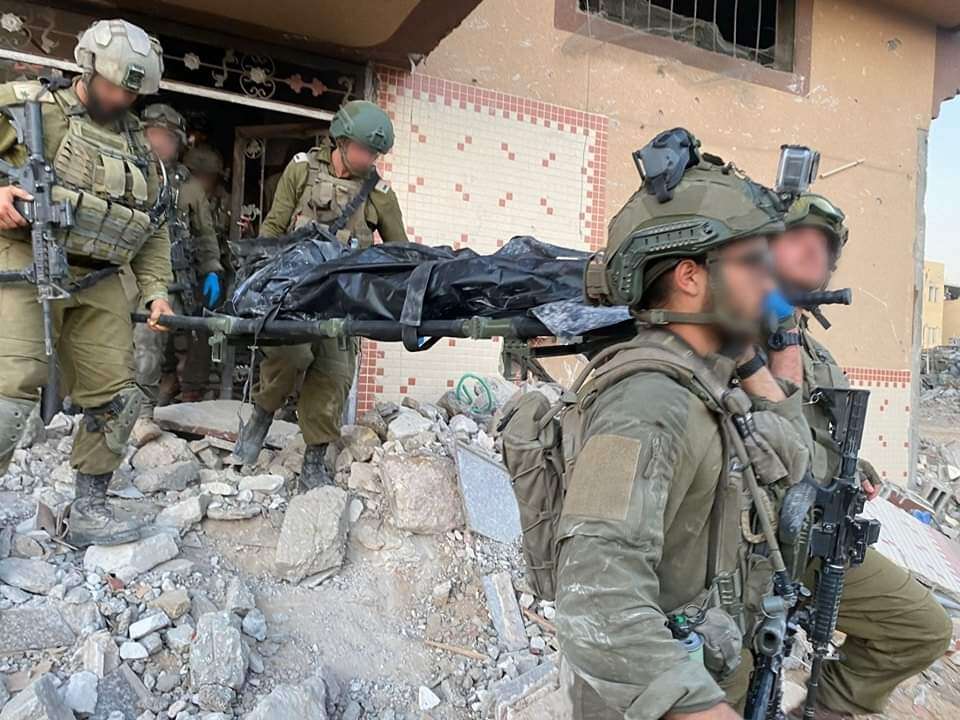In this year of unprecedented tragedy, the elimination of Yahya Sinwar in Gaza emerges as a rare moment of unequivocal success, sparking a brief sense of jubilation among many Israelis. Sinwar, the diabolical mastermind behind the October 7 massacre resulting in 1,200 Israeli fatalities, orchestrated the abduction of over 250 civilians and soldiers, and bore responsibility for acts of atrocity, sexual violence, arson, and widespread looting. This arch-adversary, who ranked prominently among Israel's most reviled foes throughout history, met his demise at the commencement of Sukkot – the very holiday his actions had desecrated a year prior.
However, in the wake of this momentary elation, an equally comprehensible surge of concern for the hostages' welfare emerges. The power vacuum created by Sinwar's elimination raises critical questions: What is the current status of the captives following their captors' leader's demise? Have orders been issued to harm the hostages? Does a functioning command structure in Gaza persist in issuing orders? Does Israel possess adequate intelligence regarding the hostages' condition and whereabouts? Is there a feasible means to incentivize those holding the hostages to ensure their safety or facilitate their release, perhaps through offers of immunity or financial inducements?
Unlike other issues, such as the future of Hamas and its leadership or the fate of Gaza and its residents, the hostage situation allows no time for deliberation. It is painfully evident that the captives are dying in captivity, and Sinwar's elimination potentially exacerbates their risk. Israel must prioritize their safe return – the war's primary objective – before becoming entangled in other matters and fronts.

Sinwar's demise significantly complicates negotiation efforts. As both the all-powerful commander in Gaza and head of Hamas's political wing, he served as the key point of contact. In his absence, there exists no clear address for dialogue in Gaza or Qatar. Israel must swiftly identify alternative avenues for communication – be it in Gaza, Qatar, or elsewhere. This situation demands creative diplomacy and potentially bold offers to expeditiously resolve this most urgent and painful issue.
Sinwar's elimination also compels Israel to articulate a clear vision for Gaza's future. Until yesterday, the ongoing pursuit of Sinwar served as justification for continued military operations. Now, the landscape has shifted. While Hamas will undoubtedly remain in Gaza – some in senior positions, potentially led by Sinwar's brother, Mohammed – there now exists an opportunity to pursue a more comprehensive solution. This could involve establishing a new governing structure in the absence of the man who held Gaza in an iron grip and brought such catastrophe upon it.
Israel would be ill-advised to await foreign proposals for a resolution. Given the current international climate of alienation, external actors might attempt to impose solutions detrimental to Israel's interests. Of particular concern is the need to resist the extreme faction within the government advocating for Jewish resettlement in Gaza – a proposition that would be disastrous on multiple fronts and risks relegating Israel to the status of a pariah state. Rather than indulging in such untenable scenarios, the government must proactively formulate a comprehensive strategy. This approach should prioritize the safe return of hostages, bring about a cessation of hostilities, and facilitate the establishment of an alternative governance structure in Gaza, all while preserving Israel's full operational freedom to ensure its security.
Such a move would also allow for ending the war in the north. Until news of Sinwar's elimination, Israel was poised to conclude the holiday in a somber atmosphere, following the death of five Golani reconnaissance unit soldiers in an encounter with Hezbollah terrorists in southern Lebanon. This tragic incident serves as further evidence of the ongoing combat in the region and underscores that the campaign in Lebanon is far from resolved. In Lebanon, as in Gaza, Israel would be well-advised to adhere to its stated objectives rather than pursuing ambitions beyond its capacity to realize.
All of this unfolds against the backdrop of Israel's impending strike on Iran, in retaliation for the Iranian missile attack on Israel on October 1. Recent days have witnessed the completion of the American THAAD missile defense system deployment, now synchronized with Israel's Air Force defense array. This integration will allow for better handling of the expected Iranian counter-response. Concluding this anticipated exchange of strikes with minimal damage could enable both parties to avoid sliding into a wider campaign – an outcome various international actors are striving to prevent.
In the interim, Israel faces a complex security and diplomatic situation on all fronts, with the ongoing threat of rocket and drone launches targeting all areas of the country. The coming days are likely to see heightened tensions, as many Hamas supporters in Judea and Samaria may attempt to avenge Sinwar's death, necessitating increased security activity throughout Israel.




